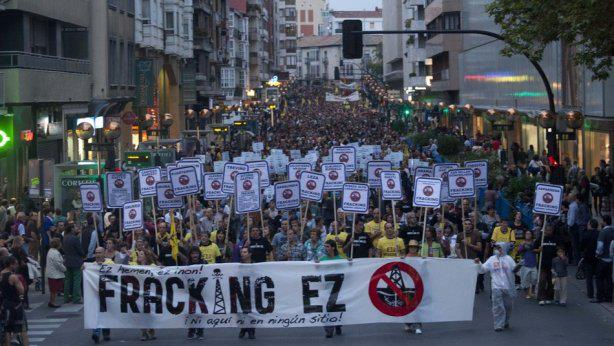Las horcas vienen a por nosotros... los plutócratas.
http://www.politico.com/magazine/story/2014/06/the-pitchforks-are-coming-for-us-plutocrats-108014.html
El autor del artículo es un millonario norteamericano (uno de los primeros inversores en amazon.com) y denuncia la creciente desigualdad y lo que estima son algunas mentiras sobre el capitalismo. Él no es anti-capitalista (al contrario) pero ve comprensible que para muchos el capitalismo es el problema.
Alguien escribió:
But let’s speak frankly to each other. I’m not the smartest guy you’ve ever met, or the hardest-working. I was a mediocre student. I’m not technical at all—I can’t write a word of code. What sets me apart, I think, is a tolerance for risk and an intuition about what will happen in the future. Seeing where things are headed is the essence of entrepreneurship. And what do I see in our future now?
I see pitchforks.
Cuenta que ni es más inteligente, trabajador o brillante que otros, sólo que ha tenido menor aversión al riesgo, cierta visión de futuro... y sobre todo mucha suerte. Lo que, para él, obviamente no es una patente de corso para enriquecerse a costa de nadie.
Tuvo suerte e intuyó lo que vendría... ahora lo que ve en el futuro son horcas.
Alguien escribió:
But the problem isn’t that we have inequality. Some inequality is intrinsic to any high-functioning capitalist economy. The problem is that inequality is at historically high levels and getting worse every day. Our country is rapidly becoming less a capitalist society and more a feudal society. Unless our policies change dramatically, the middle class will disappear, and we will be back to late 18th-century France. Before the revolution.
Que el problema no es que haya desigualdades, que son "naturales" en el capitalismo. El problema es el nivel de desigualdad, la desaparición de la clase media y la conversión de la democracia occidental en un neo-feudalismo.
Alguien escribió:
If we don’t do something to fix the glaring inequities in this economy, the pitchforks are going to come for us.
Y advierte a sus colegas los "asquerosamente ricos" (él mismo farda de bienes al inicio del artículo) que si no arreglamos el problema tarde o temprano el pueblo llano sacará la guillotina a la calle de nuevo e irá a buscarles a ellos, los ricos.
Aboga por duplicar el salario mínimo inter-profesional, argumenta que las ciudades donde este es más alto son también las que crean más empleo. Que el argumento de que los ricos crean riqueza y empleo es falso, es la clase media la que crea empleo y riqueza con su consumo. Que si se pagan sueldos de miseria no hay consumo y sin consumo no hay ricos. Y que las rebajas fiscales para ricos no incentivan la creación de empleo y riqueza, al contrario.
Alguien escribió:
But please, please stop insisting that if we pay low-wage workers more, unemployment will skyrocket and it will destroy the economy. It’s utter nonsense. The most insidious thing about trickle-down economics isn’t believing that if the rich get richer, it’s good for the economy. It’s believing that if the poor get richer, it’s bad for the economy.
Alguien escribió:
We rich people have been falsely persuaded by our schooling and the affirmation of society, and have convinced ourselves, that we are the main job creators. It’s simply not true. There can never be enough super-rich Americans to power a great economy. I earn about 1,000 times the median American annually, but I don’t buy thousands of times more stuff. My family purchased three cars over the past few years, not 3,000.
Y propone un trato entre demócratras y republicanos... les dice a los republicanos, ¡reduzcamos el estado!, pero de verdad. Si la gente tiene un salario mínimo digno no dependerán de los servicios sociales, subsidios y demás, no hará falta tanto "estado".
Alguien escribió:
Dear 1%ers, many of our fellow citizens are starting to believe that capitalism itself is the problem. I disagree, and I’m sure you do too. Capitalism, when well managed, is the greatest social technology ever invented to create prosperity in human societies. But capitalism left unchecked tends toward concentration and collapse. It can be managed either to benefit the few in the near term or the many in the long term. The work of democracies is to bend it to the latter. That is why investments in the middle class work. And tax breaks for rich people like us don’t. Balancing the power of workers and billionaires by raising the minimum wage isn’t bad for capitalism. It’s an indispensable tool smart capitalists use to make capitalism stable and sustainable. And no one has a bigger stake in that than zillionaires like us.
Muchos están empezando a pensar que el capitalismo es el problema. Yo no lo creo así, creo que el capitalismo
bien gestionado es la mejor tecnología social inventada para crear prosperidad. Pero que el capitalismo sin control lleva a la concentración y el colapso. Por eso el trabajo de la democracia es regularlo, por eso invertir en la clase media funciona. Y las reducciones de impuestos para ricos, no.
A nadie le interesa más que el capitalismo funcione que a los propios capitalistas... porque si no, la gente saldrá a la calle con las horcas y vendrán a buscarnos.
 ).
).


 ](*,)](https://statics.soniccdn.com/images/smilies/eusa_wall.gif)



